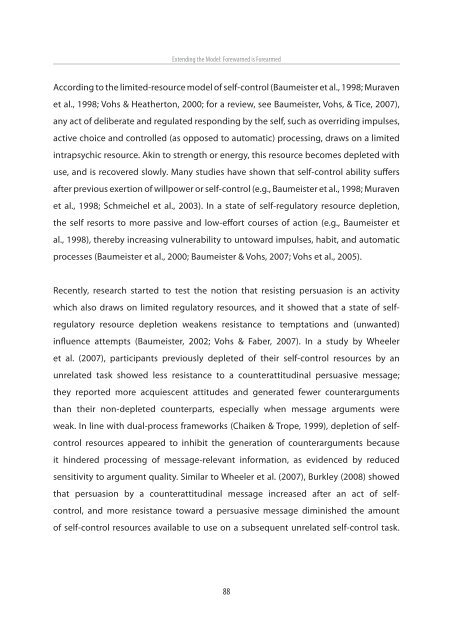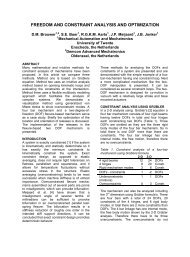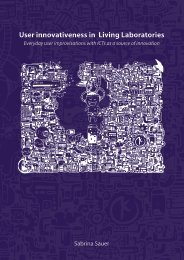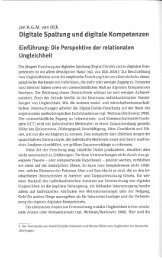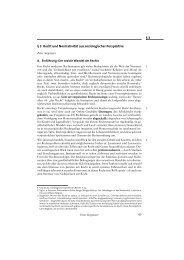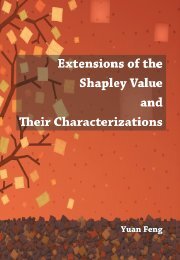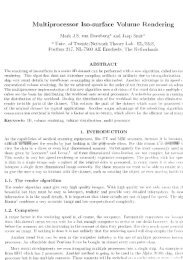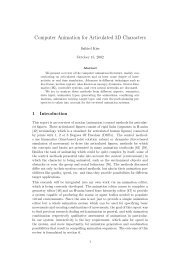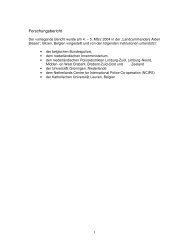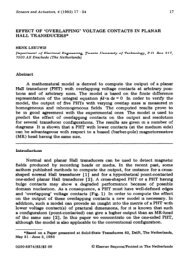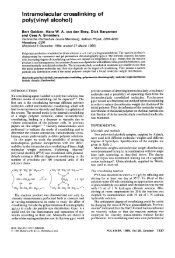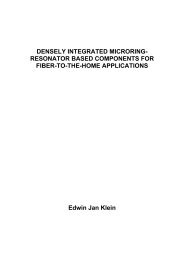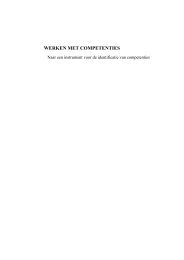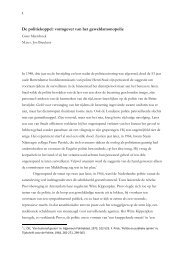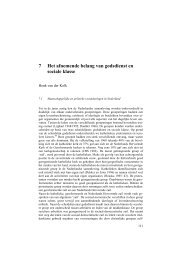Chapter 1 - Universiteit Twente
Chapter 1 - Universiteit Twente
Chapter 1 - Universiteit Twente
Create successful ePaper yourself
Turn your PDF publications into a flip-book with our unique Google optimized e-Paper software.
Extending the Model: Forewarned is Forearmed<br />
According to the limited-resource model of self-control (Baumeister et al., 1998; Muraven<br />
et al., 1998; Vohs & Heatherton, 2000; for a review, see Baumeister, Vohs, & Tice, 2007),<br />
any act of deliberate and regulated responding by the self, such as overriding impulses,<br />
active choice and controlled (as opposed to automatic) processing, draws on a limited<br />
intrapsychic resource. Akin to strength or energy, this resource becomes depleted with<br />
use, and is recovered slowly. Many studies have shown that self-control ability suffers<br />
after previous exertion of willpower or self-control (e.g., Baumeister et al., 1998; Muraven<br />
et al., 1998; Schmeichel et al., 2003). In a state of self-regulatory resource depletion,<br />
the self resorts to more passive and low-effort courses of action (e.g., Baumeister et<br />
al., 1998), thereby increasing vulnerability to untoward impulses, habit, and automatic<br />
processes (Baumeister et al., 2000; Baumeister & Vohs, 2007; Vohs et al., 2005).<br />
Recently, research started to test the notion that resisting persuasion is an activity<br />
which also draws on limited regulatory resources, and it showed that a state of selfregulatory<br />
resource depletion weakens resistance to temptations and (unwanted)<br />
influence attempts (Baumeister, 2002; Vohs & Faber, 2007). In a study by Wheeler<br />
et al. (2007), participants previously depleted of their self-control resources by an<br />
unrelated task showed less resistance to a counterattitudinal persuasive message;<br />
they reported more acquiescent attitudes and generated fewer counterarguments<br />
than their non-depleted counterparts, especially when message arguments were<br />
weak. In line with dual-process frameworks (Chaiken & Trope, 1999), depletion of selfcontrol<br />
resources appeared to inhibit the generation of counterarguments because<br />
it hindered processing of message-relevant information, as evidenced by reduced<br />
sensitivity to argument quality. Similar to Wheeler et al. (2007), Burkley (2008) showed<br />
that persuasion by a counterattitudinal message increased after an act of selfcontrol,<br />
and more resistance toward a persuasive message diminished the amount<br />
of self-control resources available to use on a subsequent unrelated self-control task.<br />
88


